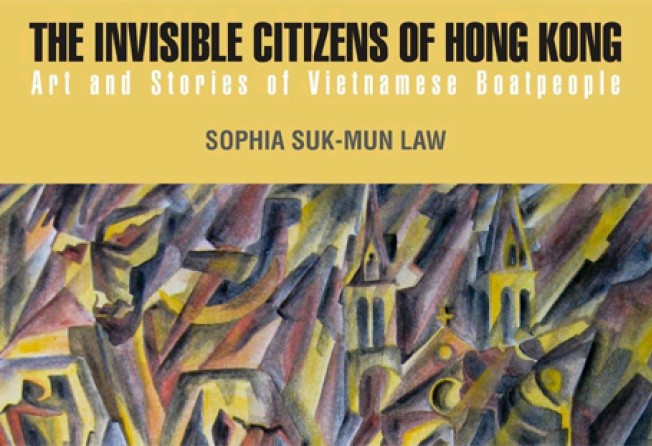by Sophia Law Suk-mun
Chinese University Press




In Sophia Law's new book, the history of the Vietnamese boatpeople who migrated to Hong Kong in the 1970s is brought to life. It balances historical detail and creative talent, allowing readers to gain an understanding of the context and experiences of this population of people, while seeing and feeling these experiences more acutely.
The first chapters of the book draw a timeline of events, describing policies, the reasons behind the migrations, the journeys that were made and the changes that took place in Hong Kong as a result of the exodus. There follows an exploration of life inside the camps - not just physical conditions, but the emotions and psychological traumas felt by their inhabitants.
Law, an associate professor at Lingnan University, examines not only the complex history and status of refugees but also, lastly, artworks from a collection of more than 600 pieces by the inmates of the refugee detention centres. They were collected between 1988 and 1991 as part of a project called Art in the Camps run by UN-funded non-profit Garden Streams.
Art, here, is a process that allows refugees to deal with what they have experienced, creating a vivid collective history of tragedy and trauma. Law writes in her introduction: "The process of visualising abstract pain through creativity is not only a kind of liberation: it can also be an affirmative experience." Where words will not suffice, art is "a language for unspeakable pain".
While protests, riots and weapons searches - images and messages broadcast on television and read in news headlines - are what most Hong Kong people remember about the Vietnamese boatpeople, "voices from inside the camp were rarely heard", Law writes.
Here, however, she presents a thorough, authoritative, well-ordered and rich account of the boatpeople's journeys both physical and emotional.
Drawing on science, anthropology, government statistics, newspapers, academic texts, reviews, annual reports, photos, testimonies, art theory, paintings, poems and more, here is a book that brings great weight and visibility to the "invisible" and allows the history of the many Vietnamese boatpeople who came to Hong Kong to be re-remembered and re-interpreted.